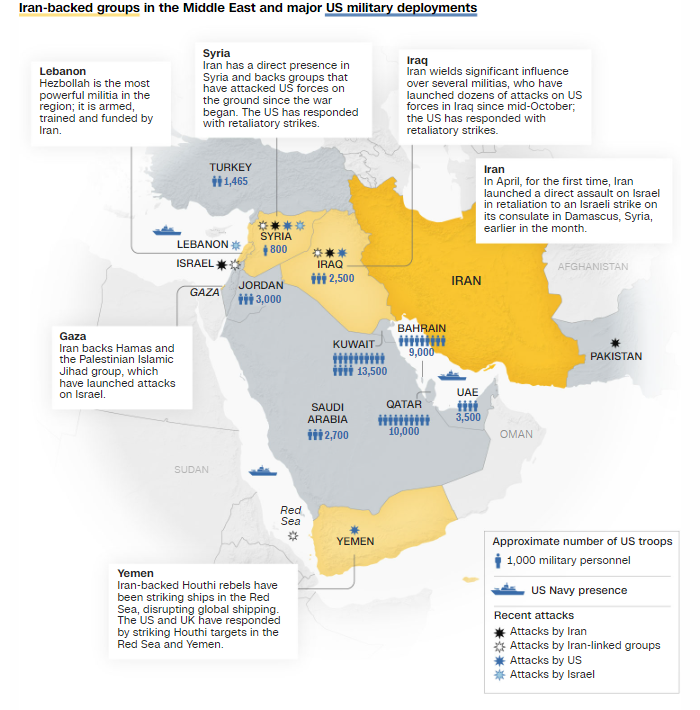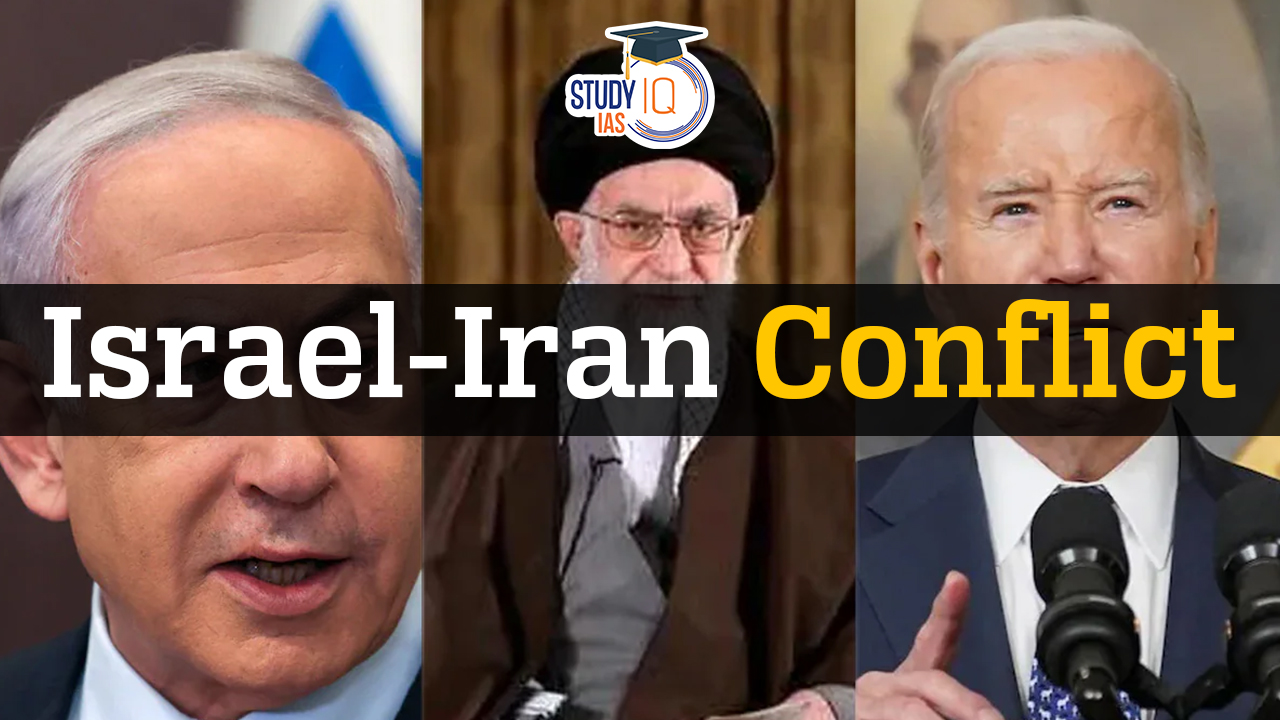Table of Contents
Tensions are soaring in the Middle East as Iran’s Supreme Leader, Ayatollah Ali Khamenei, has issued a bold statement promising a “tooth-breaking” response to Israel and the United States. This comes amid heightened military activity, with the U.S. deploying B-52 bombers to the region as a show of force and as a deterrent against potential Iranian action. Here’s a detailed look at the unfolding situation, the background, and the implications for the region and beyond.
Iran says Israel will get a Tooth-Breaking Attack
Iran has threatened a “tooth-breaking” response to Israel and the U.S. following Israeli strikes on Iranian military sites. Supreme Leader Ayatollah Ali Khamenei vowed retaliation against both nations, signaling heightened tensions in the region. In response, the U.S. has deployed B-52 bombers to the Middle East as a warning to Iran against further escalation. This conflict, involving Iranian-backed groups like Hezbollah, risks expanding into a broader confrontation impacting regional stability and global security. Meanwhile, Iran has hinted at reconsidering its nuclear policy if it faces existential threats, adding a critical layer of concern for the international community.
Iran Attacks Israel with 180 Missiles: Will Israel Hit Back?
In a shocking escalation of tensions, Iran launched 180 ballistic missiles at Israel on October 1, 2024. Israel’s Iron Dome successfully intercepted most of the missiles, yet the attack has raised fears of a broader regional conflict and even World War 3. Israeli Prime Minister Benjamin Netanyahu declared that Iran had made a “huge mistake” and vowed that Israel would respond decisively.
As Israel considers its next move, there are growing concerns that Iran’s oil infrastructure may be targeted. Such a strike would deeply impact global energy markets, possibly leading to severe economic consequences. Iran’s oil exports, a major lifeline for its economy, are now in jeopardy as the conflict intensifies.
Adding to the geopolitical tension, Israel has suddenly banned United Nations Secretary-General António Guterres from entering the country. This move comes amid international calls for restraint and a ceasefire, but Israel remains firm on its defensive stance, refusing to yield to global pressure.
With heightened military readiness, the region stands on the brink of further conflict, and the world anxiously watches to see whether Israel will strike back, possibly igniting a wider confrontation.
Iran Will Attack Israel in 24 Hours
The situation in the Middle East is highly tense, with reports suggesting that Iran might launch an attack on Israel within the next 24 to 48 hours. The U.S. has alerted its G7 allies and is actively working to prevent an escalation. U.S. Secretary of State Antony Blinken has reached out to coordinate with allies and apply diplomatic pressure on Iran and Hezbollah.
Meanwhile, Israel’s Prime Minister Benjamin Netanyahu is considering a preemptive strike if there is substantial evidence of an impending attack from Iran. This comes in the wake of recent high-profile assassinations in Beirut and Tehran, which have intensified the situation.
Israel-Iran Conflict: Background

- Early Relations and Periphery Doctrine: Iran established diplomatic ties with Israel in 1948, following the first Arab-Israeli war, becoming the second Muslim-majority country after Turkey to do so.
- Israel’s “periphery doctrine,” under Prime Minister David Ben Gurion, aimed to build alliances with non-Arab countries in the Middle East, including Turkey and pre-revolution Iran.
- These countries shared a Western orientation and faced regional isolation.
- Pahlavi Dynasty and Bilateral Ties: Under Shah Mohammad Reza Pahlavi, Iran had strong S. support similar to Israel.
- During this period, Iran and Israel maintained robust bilateral relations, including Iran selling oil to Israel despite the Arab economic boycott.
- 1979 Islamic Revolution and Its Aftermath: The overthrow of the Shah in 1979 led to the establishment of a religious state in Iran, drastically changing its view on Israel, which it then viewed as an occupier of Palestinian lands.
- Ayatollah Khomeini, Iran’s Supreme Leader, labelled Israel as “Little Satan” and the United States as “Great Satan,” indicating adversarial relations due to perceived interference in the region.
- Regional Dynamics and Iran’s Position: Iran’s non-Arab identity placed it at odds with Gamal Abdel Nasser’s pan-Arabism.
- However, post-Nasser, Iran’s relations with Arab states like Egypt warmed somewhat, highlighted by the 1975 accord with Iraq that reduced hostilities.
- Shadow War Post-1979: Although Israel and Iran have not engaged in direct military conflicts, both have engaged in a shadow war through proxies and strategic attacks.
- Israel has conducted several attacks on Iranian nuclear facilities and was implicated along with the U.S. in creating the Stuxnet virus, which targeted Iran’s Natanz nuclear facility.
- Iran supports militant groups like Hezbollah and Hamas, which are anti-Israel and anti-U.S.
| Related Articles | |
| Israel-Hamas Conflict | Israel-Hezbollah Conflict |
| Israel-Palestine Conflict |
World War |
Who Are Iran’s Allies?
- Syria:
- Iran’s most significant ally in the region.
- Supported Bashar al-Assad’s government in Syria alongside Russia, helping it endure the country’s long civil war.
- Hezbollah:
- Iran backs Hezbollah, a powerful armed group in Lebanon.
- Engages in frequent cross-border exchanges with Israel since the conflict with Hamas escalated.
- Resulting in the displacement of civilians from both sides of the border.
- Iraqi Shia Militias:
- Iran supports several Shia militias in Iraq.
- These militias have launched attacks on US bases across Iraq, Syria, and Jordan.
- Retaliatory strikes by the US occurred after three American soldiers were killed in Jordan.
- Yemen’s Houthi Movement:
- Iran provides support to the Houthis who control Yemen’s most populous areas.
- The Houthis have launched missiles and drones at Israel and attacked commercial shipping near their shores, including sinking at least one vessel.
- In response, the US and UK have conducted strikes against Houthi targets.
- Palestinian Armed Groups:
- Supplies weapons and training to groups like Hamas.
- Iran’s support contributed indirectly to the current war in Gaza, initiated by Hamas’ attacks on Israel on October 7, though Iran denies involvement in the specific October 7 attack itself.
India’s Stance
India maintains diplomatic relationships with both Iran and Israel, carefully balancing its regional interests.
Relations with Israel
- India recognized Israel in 1950, with full diplomatic relations established in 1992.
- Israel provides India with advanced technologies and expertise, particularly in agriculture.
- Israel is a major arms supplier to India, reinforcing strong defence and security ties.
- The Joint Committee on S&T, established under the 1993 S&T Cooperation Agreement, oversees India-Israel cooperation in science and technology.
- Approximately 85,000 Jews of Indian origin live in Israel, all holding Israeli passports.
Relations with Iran
- Diplomatic ties with Iran were also established in 1950.
- Iran has been a key supplier of crude oil to India, although this has been impacted by international sanctions.
- In 2018, India and Iran signed an agreement to avoid double taxation and prevent fiscal evasion regarding income taxes.
- Both countries share concerns over terrorism emanating from Pakistan and Afghanistan, and the situation with the Taliban.
- India is a popular destination for Iranian tourists, with about 40,000 visitors annually.
- India supports the Chabahar port project in Iran, which is vital for India’s access to Afghanistan and Central Asia, circumventing Pakistan.
What Happens Next?
- Iran knows it crossed a line when it became the first nation state in West Asia to launch an attack on Israel since the 1991 Gulf War, which means its objective was to demonstrate its capabilities.
- Iran knows Israel is likely to retaliate and if Israel directly hits Iran, it cannot just walk away from the conflict.
- This shows that the latest attack is Iranians’ way of telling Israel that it is ready for an open war.


 Topological Materials: The Future of Qua...
Topological Materials: The Future of Qua...
 China’s Deep Sea Station in South Chin...
China’s Deep Sea Station in South Chin...
 Project ICE-CRUNCH: India-Switzerland Co...
Project ICE-CRUNCH: India-Switzerland Co...





















